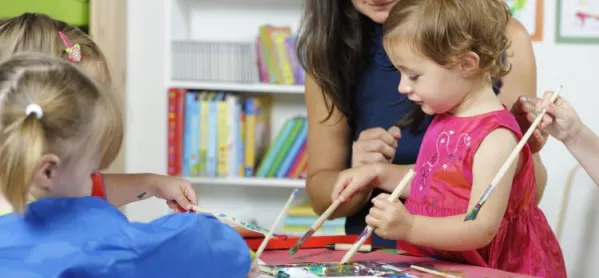In today’s society, home-based childcare is still viewed as a less professional childcare option than other provisions, such as nurseries and pre-schools. Worse, this seems to be the viewpoint of not only parents and carers but also of other early years professionals and childcare providers.
This needs to change.
The negative generalisations of home-based childcare are unfair and usually ill-informed. We also need to change the way the sector in which I work is viewed, because it is essential all those in early years work together to fully support the learning and development of the children.
With the changes in government legislation resulting in so many more providers in the early years sector sharing the care of children, this partnership working couldn’t be more important.
So how can we make it happen?
Making better connections
The first step is to throw out any preconceived ideas about what a setting is like or how things might be done. Such assumptions are almost always wrong.
Next, we have to make the time to properly understand a child’s experience in early years. That means making better connections with the other providers involved in the care of that child.
I understand that time-restraints are something that all early years professionals face on almost a daily basis. Finding time to work in partnership and even contact other settings can be difficult to prioritise and arrange.
However, if we are aware that a child attends another setting, particularly a home-based childcare setting, it is our duty of care to ensure we make that connection with it.
Different settings
We also have to understand that a child may be very different in each setting.
Home-based childcare is a completely different environment than a nursery or pre-school. The child may react and behave in different ways depending on which setting they are in. Understanding those difference can be important in better supporting a child.
Effective partnership is fundamental and can be achieved without increasing the workload of each professional or setting.
Ideally, an opportunity for each practitioner to visit the child in both settings and meet each key person would be the most beneficial and productive method of working together. It enables each practitioner to observe the child naturally within each environment, noting similarities and differences in their behaviour and interests.
Failing that, we have found a phone conversation with the additional setting is a quick, effective method of developing a professional partnership; establishing a basic overview of the child, the setting, their level of attendance and current interests in each environment.
Communication books
In addition to this, communication books between the different settings are an effective means of sharing information when time restraints are in place.
These books travel between each setting with the child or parent and contain information on the child’s mood, temperament, behaviours, interests and any other important information from their time at each setting. This enables each practitioner to plan effectively for that child as a result of the information shared.
Sharing achievements, artwork and learning experiences and assessments is vital. Sharing the child’s learning journal at some point within the term - or even working together on compiling a learning journal for the child - is hugely beneficial to both settings and professionals in supporting the child’s learning and development.
Despite professional differences, societal opinions and viewpoints, each practitioner within the early years sector should be considered a professional and an essential part of a child’s learning and development.
Once you have that in place, sharing becomes easy and the impact on the child can be substantial.
Chloe Webster works at Pebbles Childcare, an OFSTED registered childminders in Worthing, which was shortlisted for early years setting of the year at the Tes School Awards 2017. You can find them @PebblesWorthing www.pebbleschildcare.blog
Want to keep up with the latest education news and opinion? Follow Tes on Twitter and like Tes on Facebook



